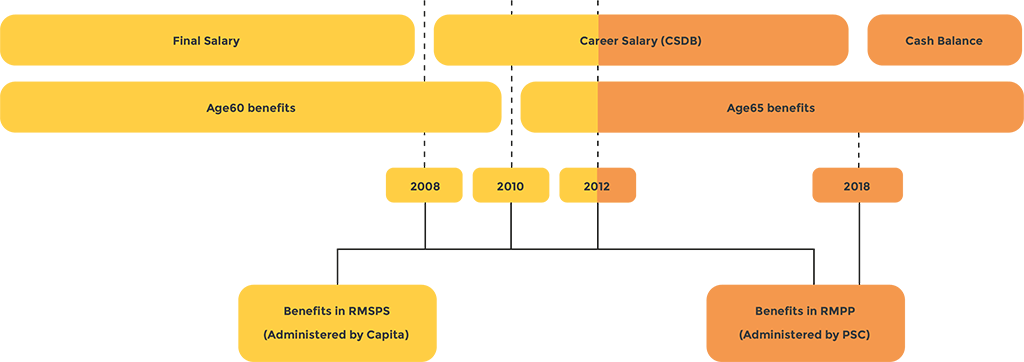The Trustee Board is made up of nine Trustee Directors. Four Trustee Directors are nominated by the employers, four by the unions – and the ninth is an independent Chair, appointed by Royal Mail with the unions’ agreement. They all meet formally around six times a year. The Trustee Board is supported by six sub-committees. The sub-committees each cover a different area: administration, audit, risk & finance, discretions, internal disputes resolution, funding and investment. One position is currently vacant. The eight serving Trustee Directors are:

Joanna Matthews – Chair
Joanna Matthews joined the Board as Chair in October 2012. She built her career as a pension lawyer at Sacker & Partners. Joanna became a full-time professional trustee in 2006 and today chairs a number of occupational pension schemes including the: Civil Aviation Pension Scheme, Electricity Supply Pension Scheme, Siemens Pension Scheme and the Mirror Group Pension Schemes.

Gary Sassoon-Hales
Gary is chair of the National Committee of Unite CMA. He has always been interested in pensions and has been a part of Unite CMA’s pensions working group since 2018. He joined Royal Mail in 1995 learning the business from the ground up in Delivery in Wales and London, Processing in Cardiff/Swansea. He worked both as an automation lead and as a Shift Manager. He joined the Trustee Board in April 2023 as a Member Nominated Trustee.

Mark Ashworth
Mark Ashworth represents and is a director of Law Debenture, which is a professional independent trustee of pension schemes. He is a Barrister and Chartered Secretary and joined Law Debenture in 2001. He serves on the trustee boards of a number of major pension schemes. He is a member of the Council of the Society of Pensions Consultants, and served as its President from 2006 to 2008. Law Debenture was appointed to the Trustee Board in March 2006.

Kevin Carey
Kevin has served on the Communication Workers Union Pensions Working Group since 2018 and has also served as an interim Trustee for the new Royal Mail Collective Pension Plan. Kevin joined the Trustee Board in October 2024 as a Member-Nominated Trustee.

Lionel Sampson
Lionel Sampson is the Senior Policy Advisor to the Deputy General Secretary, Postal Department, of the CWU. He was previously the Policy Advisor dealing with pensions. Prior to this, he was Divisional Representative for the South East Division of the CWU, and a member of both the Union of Communication Workers and National Executive Councils. He joined the Trustee Board in October 1996.

Paul Brown
Paul Brown was Head of Commercial Development for Post Office Limited – he joined The Post Office as a Branch Manager in 1999 and was a member of The Post Office Senior Leadership Team from 2006. Paul joined the Trustee Board in August 2012 and remains a Trustee Director on behalf of Post Office Limited.

Paul Kennedy
Paul Kennedy is the Midlands Divisional Representative for the Communication Workers Union, a post he has held since its creation in 1992. He joined Royal Mail in 1974 and has held a variety of CWU posts since 1982. He is also a member of the Employment Tribunals. He joined the Trustee Board in August 2006.
Karen McKay
Karen is the Head of HR Policy for Royal Mail Group and is a member of the Chartered Institute of Personnel and Development. She joined Royal Mail in 1989 and has worked in a number of roles including Employee & Industrial Relations. She joined the Trustee Board in December 2022 as an Employer Nominated Trustee.

